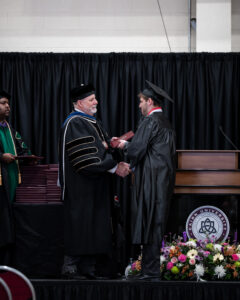

We live in an era of individual expression. You don’t have to look very far in our culture to see this. A few minutes spent on social media or watching the late-night talk shows is all it takes to see that contemporary culture not only embraces but encourages the idea that if you feel it, say it, unfiltered—never mind the accuracy or what the implications are of what you say.
If you think it, if you feel it, if it is your reaction to a circumstance, event, or other person—just say whatever you want, in whatever way you want, with whatever tone you want. That is your right. To be fair, this in fact is a freedom or a right in this land.
After all, the Constitution guarantees the right of expression. The freedom of expression is a core principle of our constitutional republic. We do not censor. We do not stifle. It is an American ideal.
What I am referring to, though, is something different. I am referring to the dangers of unfiltered, unrestrained and unmeasured personal expression: saying things without thought, without considering the truthfulness, the accuracy and the implications of our words.
This is not a wise way to live. Of course, we can say and do whatever we want, but there is a very poignant verse in the Bible where the apostle Paul says, “All things are lawful, but not all things are helpful” (1 Cor. 10:13). Another way of expressing this is to use a more contemporary axiom, “Just because we can do something, doesn’t mean we should.”
Knowing what to say, when to say it, and how to say it; knowing when we should do something because it is the best course of action and not just simply because we can—these require judgment. This is the way of wisdom.
It is not a way of repression but a way of restraint, of self control, and of choosing what is best.
The Old Testament book of Proverbs has numerous references to the importance and impact of our words. In Proverbs 17:27, we see that restraint regarding our words says something about our character: “Whoever restrains his words has knowledge, and he who has a cool spirit is a man of understanding.”
The real question is whether we as a society value the personal character qualities of being knowledgeable and having understanding. Another implication of this passage is that when people do not restrain themselves, they show themselves to be the opposite of having knowledge and understanding.
It is possible to assess the character of people by their lack of verbal restraint. We have all experienced this on a relational level. But it has larger societal and cultural implications that begin with us as individuals on a relational level.
We must also consider the damage done by words expressed without filter or consideration. In Proverbs 12:18 we read, “There is one whose rash words are like sword thrusts, but the tongue of the wise brings healing.” Words have the power to inflict pain and wound. They also have the power to bring healing.
This proverb underscores again the character associated with painful words versus healing words. Do we aspire to be rash or wise? If our words are as sword thrusts, inflicting pain on others, we show ourselves to be rash. If our words rather bring healing, we show ourselves to be wise.
The unrestrained and unfiltered expression that we see running rampant in our world—whether “haters” on social media or character assassins on late-night talk shows—says something about us as a people and our level of tolerance of rashness at best or our enamorment with it at worst.
Words matter. Our speech has an impact on those around us, on culture and society and on future generations. It is also true that we are responsible for what we say, when we say it and how we say it. We can choose a different path. We can reject the unfiltered norm of our day and choose the way of self-control, restraint and wisdom.
I often consider what a different world we would be living in if we took full responsibility for our words and considered the power of truthfulness when we disagree and graciousness in the way we talk to our coworkers, our children, our friends and strangers.
Again, Proverbs speaks to this. In Proverbs 16:24 we read, “Gracious words are like a honeycomb, sweetness to the soul and health to the body.” We could use a little of this these days. Our disagreements and divisions are real. Whether personal, political, social, or cultural, we are not of one mind.
This is a reality of life and part of being human. Another part of being human is our ability and inclination to express ourselves. Yet another part of being human is the moral capacity to consider the implications of our expressions, to hold our tongues when appropriate, to consider others, to weigh facts and speak truth and to season our speech with grace and wisdom.
These things are not impossible. We have the capacity. Do we have the desire?
This article was originally published in the Bucks County Courier Times on May 9, 2021.



![Debbie Lynn Wolf [400]](https://cairn.edu/wp-content/uploads/2023/11/Debbie-Lynn-Wolf-400-300x300.gif)
